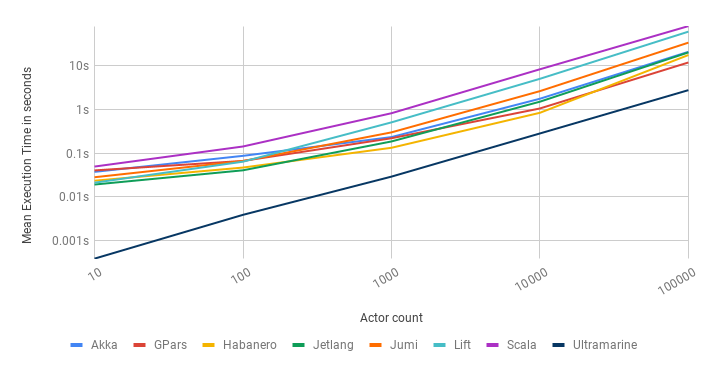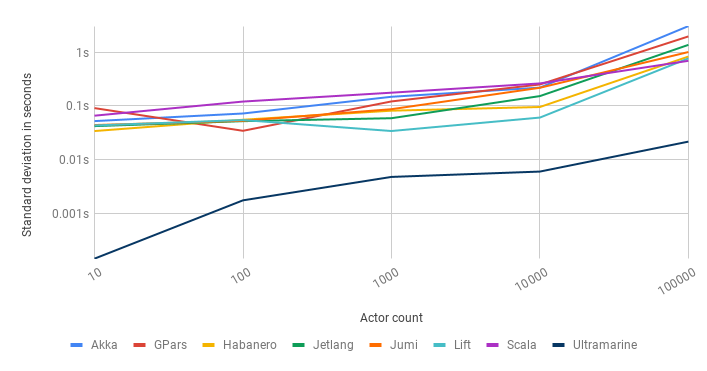
Ultramarine is a lightweight modern actor library built on top of the Seastar C++ framework. It helps writing distributed applications using virtual actors. It allows developers to write highly scalable applications while greatly simplifying discovery, state management, actor lifetime and more.
The Virtual Actor Model is a variation of the Actor Model where “virtual” actors (transcendental entities combining state and execution context) share and process information by exchanging messages.
It is heavily inspired by the Microsoft Orleans project.
Ultramarine is a work-in-progress.
Installation
Ultramarine is built upon Seastar and share the same dependencies. Seastar provides a convenience script to pull all necessary packages (install-dependencies.sh).
To pull Seastar and configure Ultramarine:
./cooking.sh -t Release
To build the examples:
ninja -C build
Documentation
Various guides, examples and API reference are available here.
Code Example
First we need to define an actor:
class hello_actor : public ultramarine::actor<hello_actor> {
public:
using KeyType = std::string;
seastar::future<> say_hello() const {
seastar::print("Hello, %s.\n", key);
return seastar::make_ready_future();
}
ULTRAMARINE_DEFINE_ACTOR(hello_actor, (say_hello));
};
And then call the actor activation from anywhere in your seastar code using an actor_ref:
auto ref = ultramarine::get<hello_actor>("Ultramarine");
auto future = ref->say_hello();
// wait or attach a continuation to the returned future.
Performance
Ultramarine is built on Seastar and benefits from a lock-free, shared-nothing design. Compared to typical actor model implementations, it doesn’t use any locking or complex cache-unfriendly concurrent data-structures internally.
Specifically, this gives Ultramarine an advantage on many-to-many communication patterns, because there is no contention on mailboxes. Also, because Ultramarine doesn’t have per-actor mailboxes and actor’ messages aren’t processed in batches, it has better latency characteristics.
As an example see how it compares against other popular actor libraries on the Big actor benchmark:
| Mean Execution Time | Standard deviation |
|---|---|
 |
 |
More information and benchmarks are available here.
Going forward
Ultramarine is a small project and currently lacks:
- Clustering. An actor system on a local machine is nice, but the concept shines when actors are allowed to migrate across a set of clustered machines freely.
- Persistence. Actors could write their states in storage or non-volatile memory to provide failure-safety.
- Steaming. Message-passing doesn’t always map well to domain-specific problems. A streaming API would be nice to have.
- Actor as heterogeneous compute abstraction. Actors are useful to abstract over hardware because the abstraction’s requirements are very loose. CAF has demonstrated that actors work well to abstract a GPU.
License
This project is licensed under the MIT license.


